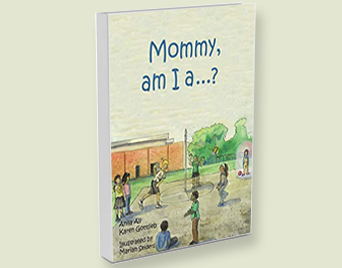


“Americans on Hold: Profiling, Prejudice, and National Security”
Shortly after the September 11 attacks, Anila Ali became a naturalized American citizen yet continued to be stopped at US border crossings, profiled because of her Pakistani origins. She noted that hundreds of other individuals with no connections to extremist groups were generating false database matches, diverting law enforcement resources and unnecessarily targeting Muslim Americans.
To tackle discriminatory profiling in the name of national security, Ali partnered with Zuhair Mahd (a Jordanian-American) to make a documentary on their personal encounters with problem. The film was produced in conjunction with New York University Law School’s Center for Human Rights and Global Justice.
The film and ongoing activist efforts by Ali’s network helped push the Department of Homeland Security to develop its TRIP program, which allows frequent travelers to get a redress number attached to their flight reservation to avoid false-match screening. Thousands of citizens have benefited from the program. Ali hails the documentary and campaign as an example of how to find positive solutions to challenges.

Anila Ali is the co-author of a children’s book called “Mommy, Am I?” that promotes tolerance through the story of a young Muslim American girl named Aisha studying at an public school. Ali presented the book to President Obama at a Ramadan iftar at the White House.
The Story behind the Story: Though residing in an integrated and diverse city in Southern California, Ali’s daughter experienced incidents of name-calling – and Ali saw students in her classroom singled out by classmates for being Muslim. Anila shared these experiences with her longtime teaching colleague, Karen Gottlieb. The immediate response from Gottleib: “We do so much work as teachers with the concepts of prejudice and tolerance through the study of the experience of Anne Frank, it’s time we start a dialogue for children about being a Muslim in today’s multicultural America.”
The Book’s Message: Ali and Gottleib drew on their experiences in the classroom to craft a thoughtful story that could engage elementary school students. Yet while written primarily for children, “Mommy, Am I?” challenges readers of all ages to examine their thoughts and actions. The book encourages readers to “follow in Aisha’s footsteps and discover how one incident changed the lives of so many. You may even see yourself in this young girl’s simple tale.”

“How to Engage and Stop the Radicalization of Muslims in the US”
In 2009, Anila Ali was invited to the Obama White House to present recommendations on how to stop extremism. For her recommendations, Ali drew on her work with at-risk youth and parents in local communities, as well as her partnerships with law enforcement officials. The paper proposed constructive common-ground solutions that could meet the needs of both Muslims families and national security.
In 2015, Ali returned to Washington as a speaker at President Obama’s White House Summit on Countering Violent Extremism. Her message for policymakers and community leaders includes the following: